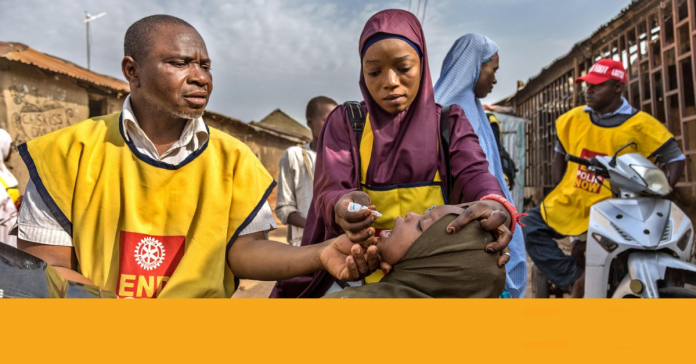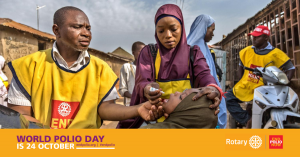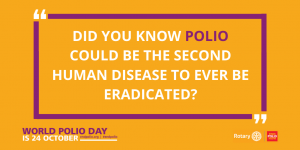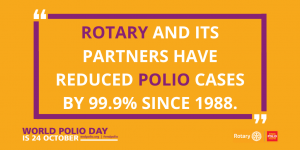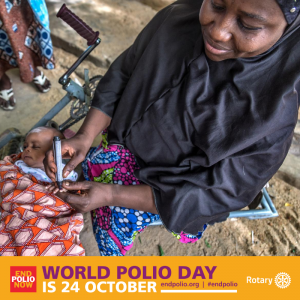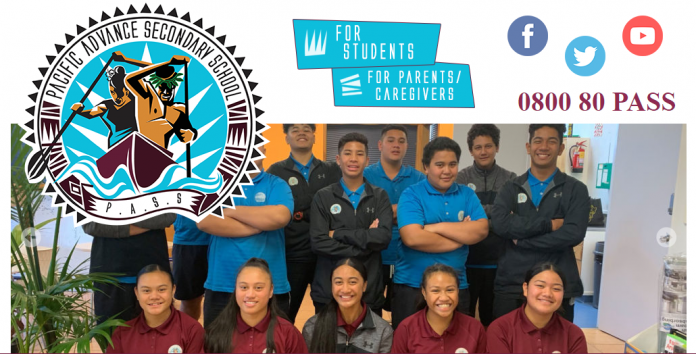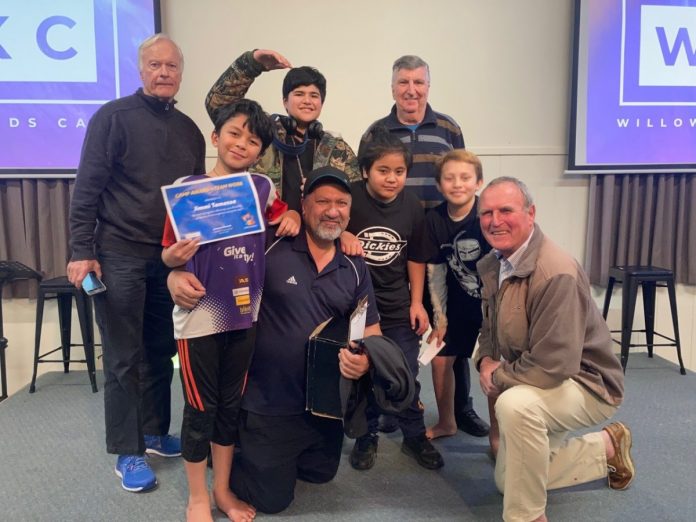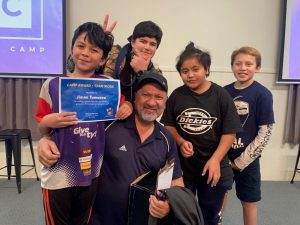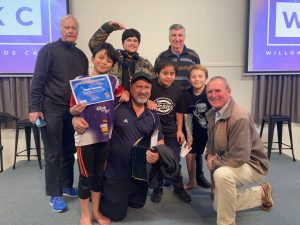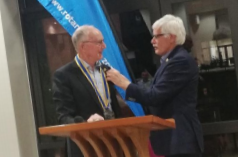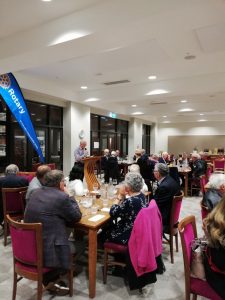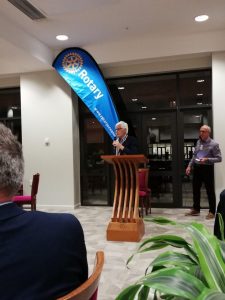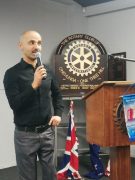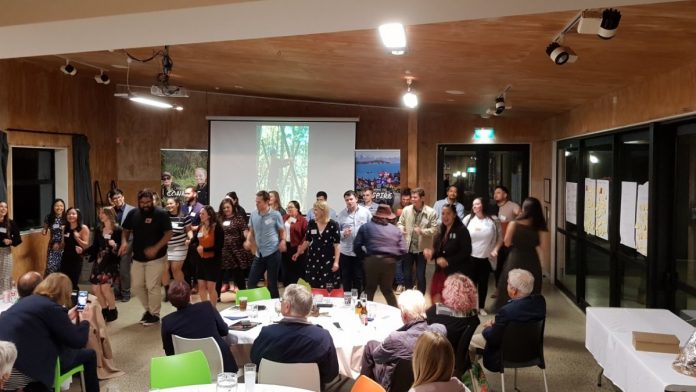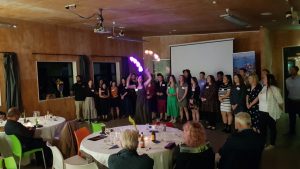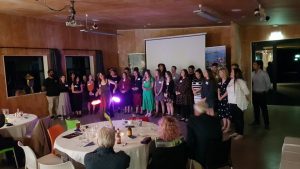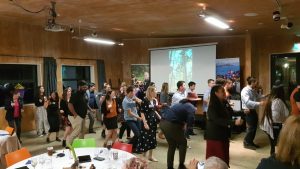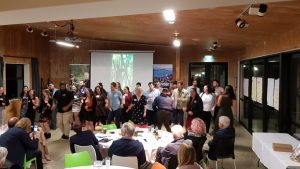Each December the Rotary Club of Onehunga – One Tree Hill proudly presents its annual awards to students attending local Onehunga schools. We congratulate every student for their steadfast work and leadership skills demonstrated within their schools and our community.
This year the awards were presented to club members by fellow Rotarian and Principal of the Onehunga High School, Deidre Shea. This year many schools had to streamed their ceremonies to the students who were studying from home due to COVID-19.
The Rotary Club commends all recipients in spite of the additional challenges facing them this year. It is fascinating to see these children at such young ages with aspirations, that years ago, many wouldn’t have contemplated.
FRED MCKEEVER AWARD ($1,000)

Onehunga High School: Nisha Murugan
MCKEEVER AWARDS ($500 each)
 St Joseph’s Primary School: Shaylin Mua
St Joseph’s Primary School: Shaylin Mua
 Oranga Primary School: Serenety Sagapolu
Oranga Primary School: Serenety Sagapolu
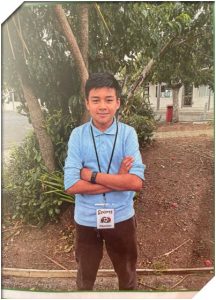
Te Papapa Primary School: Saw Yo Har Than
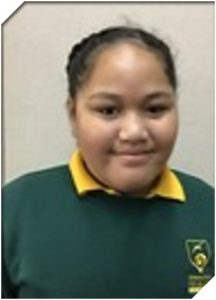
Onehunga Primary School: Sela Tengange
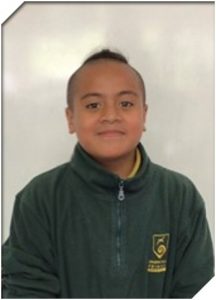
Onehunga Primary School: Kaleb Sagisagi

Royal Oak Intermediate: Martin Villamu
HASKELL AWARD ($2,000 each)

Onehunga High School: Gabriella Manu

Onehunga High School: Isaac Nair

Onehunga High School: Keta Tutu’u
WALLS AWARD ($1,000)

Onehunga High School: Theresa Faifo
AWARDS HISTORY
Fred McKeever Memorial Scholarships
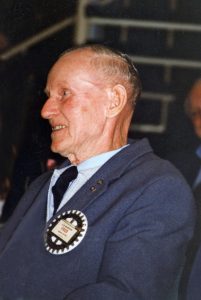 Fred McKeever (b. 21st Jan 1915, d. 31st Dec 1998).
Fred McKeever (b. 21st Jan 1915, d. 31st Dec 1998).
Fred McKeever was a prominent Onehunga businessman who lived all his life in the town and joined the Rotary Club in December 1950.
Fred pass away in 1998 at the age of 83 years and in his Will left a considerable sum for the benefit of students in Onehunga schools.
In the early days Fred used to be a delivery boy on a bike delivering groceries around Onehunga. When Kingsford Smith flew from Australia in on 10th Nov 1928 Fred, then aged 13 cycled out to the old Mangere airport on his bike.
Fred owned owned McKeever Transport, a trucking business in Onehunga which grew to a fleet of 10 vehicles. He also served on the Onehunga Borough Council and was strongly committed to the Rotary movement.
Fred joined the Rotary Club in December 1950 and held the record of 100% attendance. He was made Club President in 1970-71 and became a Paul Harris Fellow in 1995. He was a bachelor but still managed to provide hospitality to 230 members and their wives during his Presidency.
His generosity is acknowledged and many young people in Onehunga have benefitted by being recipiants of the Fred McKeever Memorial Scolarship.
Fred left a sum of money to be invested for 21 years; the income in that 21 years being applied to “Scholarships” to pupils at Onehunga Primary, Onehunga High School, Royal Oak Intermediate and St Joseph’s Convent and provided the Senior Citizens Service Club with 10 electric blankets per year. Scholarships now include the Oranga and Te Papapa Primary Schools.
At the end of 21 years the original four schools mentioned and the Senior Citizens Service Club Foundation receive the capital funds for each of the four schools and the Senior Citizens.
In 2019, this legacy termianated after 21 years. Maungakiekie Rotary, formally Onehunga, have decided to fund and continue the Fred McKeever Memorial Scholarship. The annual Fred McKeever awards are now supported by the Onehunga – One Tree Hill Rotary Club Trust.
Fred’s generosity is acknowledged and many young people in Onehunga will benefit in future years through his benevolence.
Alan Haskell Memorial Education Trust
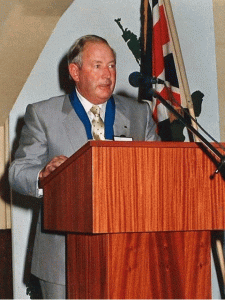 Alan Haskell (b. 15th Nov 1926, d. 9th Sept 1991).
Alan Haskell (b. 15th Nov 1926, d. 9th Sept 1991).
Alan Haskell was born in Onehunga and lived and worked there for his whole life.
In 1951 Alan started Trafalgar Hardware which was a well-known hardware store near Tin Tacks Corner, Onehunga. Alan’s life was notable for service to the community, particularly through service on the Board of Onehunga High School, including a term as Chairman. Alan’s three children attended Onehunga High School.
Alan became a Rotarian in 1957 and served as President of the Onehunga Rotary Club in 1969/70 and District Governor in 1985/86. Alan was awarded a Paul Harris Fellow in 1986, a Justice of the Peace and was awarded the Queen’s Service Medal.
Following Alan’s death in 1991, the Rotary Club of Onehunga initiated the Alan Haskell Memorial Education Trust to commemorate and pay tribute to Alan’s service to the community and to further local child education.
Dennie Walls Endeavour Award and Cup
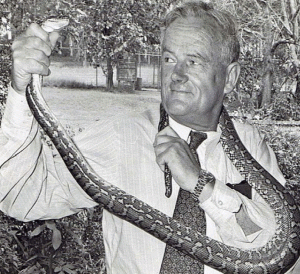 Sydney Denham (Dennie) Walls (b. 20th Jul 1910, d. 20th Oct 2001).
Sydney Denham (Dennie) Walls (b. 20th Jul 1910, d. 20th Oct 2001).
This award is presented each year to an Onehunga High School pupil who inspires others with their effort, determination and perseverance to achieve his or her best despite the barriers presented and reflects Dennie’s own determination to succeed.
Dennie and his sister would catch their horses every morning on the family farm at East Tamaki, ride by horse to the station, catch the train to Newmarket then walk to Auckland Grammar and Epsom Girls’ Grammar respectively.
During the depression, Dennie managed to get an apprenticeship with a Chemist and once qualified, worked hard all his life to run a successful business as a Pharmacist. Dennie formed a partnership that began Walls and Roche Pharmacy in Royal Oak.
On his death Dennie left a Trust to benefit people in our community. Every year this award is presented to a student who inspires us with their effort, determination and perseverance to achieve his or her best despite the barriers which are presented.
Dennie Wall’s generosity is greatly acknowledged and many young people in Onehunga will benefit in future years through his benevolence.






